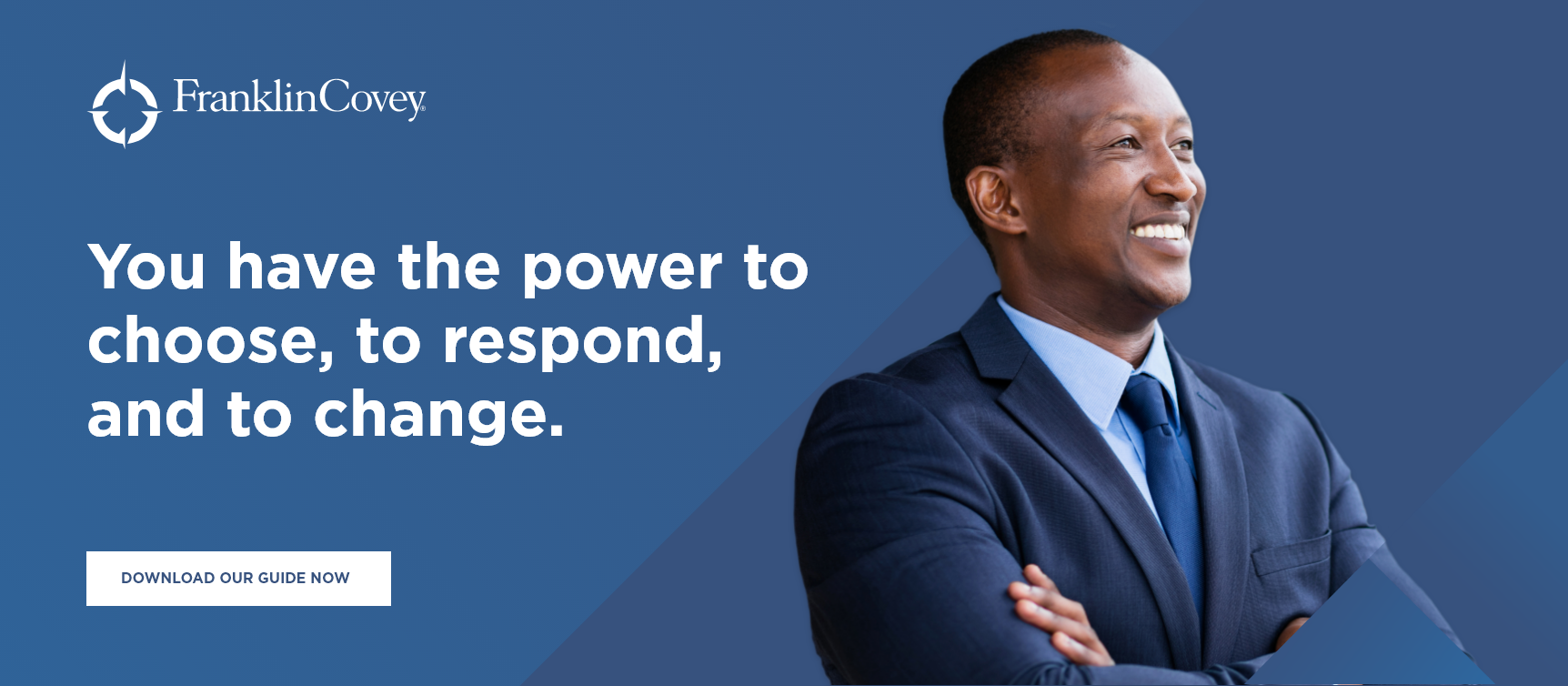It’s critically important to commit to taking small actions, within your circle of influence. Most people get caught up living their lives within their circle of concern. Notice the diagram below.
The outside circle, or the Circle of Concern in the above visual represents all the things in our lives, both personally and professionally that affect us, but that we have no control over. Some examples of items that would fall into our Circle of Concern are things like the weather, traffic, other people’s decisions or moods etc., to name just a few.
The Circle of Influence, or the center circle in the diagram represents all the things in our lives, both personally and professionally that we have absolute control over. Things like our attitude, body language, choices, things we say, and our behavior would fall within our circle of influence. Although it can be argued that some things may be unconscious, we can also argue that when we are self-aware, we can control and make conscious choices involving our behavior. Reactive people may blame others for their behavior, or use their personality as a crutch or shield. Proactive people accept responsibility for their behavior, and do their best to live in their circle of influence every day.
The solution to this challenge is to commit to taking small consistent actions in your circle of influence. This is all about your focus. Like Tony Robbins said, “Where focus goes, energy flows.” You want your focus to be on those things you can control or influence, and away from the things you have no control over.
It’s easy to get caught up in the trap or a mindset of; “I just don’t have any control over this, and as a result setting yourself up for failure by stressing over things you cannot control.” Remember to maintain your proactive language here, and focus your actions on the things you can influence, even if they are just small actions. In the exercise example, your first month at the gym might be for 20 minutes, three times per week, slowly increasing your time and endurance month after month.
If it’s an idea about a policy or procedure at work that you feel can be changed or improved upon, however, you feel that it’s out of your circle of influence, perhaps you can sell your idea to someone who has more influence in a particular department, and create change through a synergistic partnership.
To make lasting behavioral changes and to truly make your resolutions stick, you must:
- Be Open to Change
- Be Intentional and Aware of Your Self-Talk
- Learn Everything You Can About Your Goal
- Power Through Setbacks
Learn more about the timeless principles in The 7 Habits of Highly Effective People by downloading our guide.
